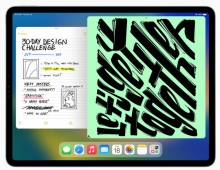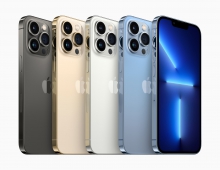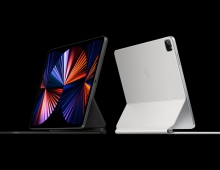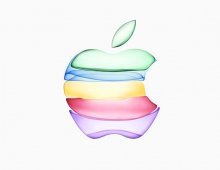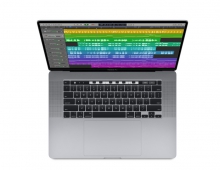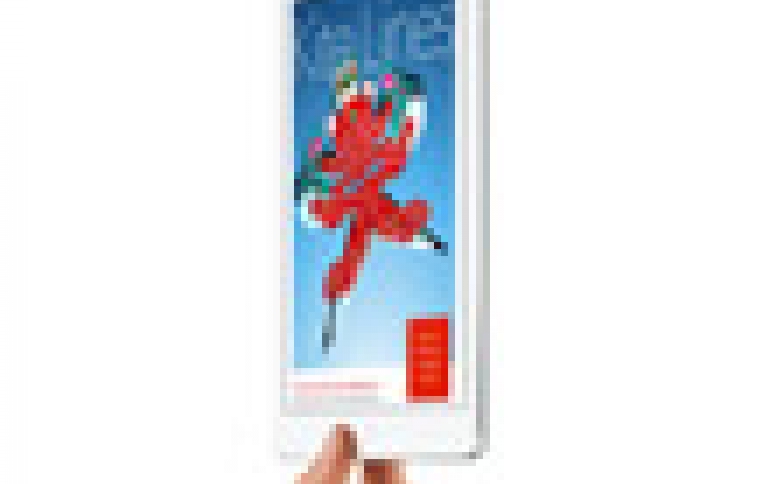
Apple's iPad Air Offers Performance But Remains Pricey
Apple's ultra-thin iPad Air on Tuesday received
positive reviews around the web mainly for its improvements
compared to the previous iPad, although it remains more
expensive than the compatition.
The new full-sized iPad goes on sale from Friday
and will be priced starting $499.
Both the Wall Street Journal and the New York Times praised Apple's new tablet.
WSJ's Walt Mossberg called the iPad Air the best tablet he has ever reviewed.
"That isn't just because of its slimmer, lighter design, but because Apple boasts 475,000 apps optimized for tablet use - far more than any other tablet platform," Mossberg wrote.
He also mentioned the low weight of the iPad Air, as it weighs just 1 pound, down from 1.4 pounds for the previous iPad 4 model.
He also credited the iPad Air's battery performance, saying the new iPad clocked a battery life of 12 hours and 13 minutes.
Damon Darlin of the New York Times said the gadget is a delight to use, mentioning the high performing dual antennas for Wi-fi.
However, the reviewers highlighted that the iPad Air is pricier than many of its competitors.
The iPad Air retails for $500, while Amazon.com's 8.9-inch Kindle Fire HDX costs $379, Microsoft's Surface 2 starts from $449, while Samsung's Galaxy Tab 3 10.1-inch tablet has a suggested retail price of $400.
Apple in the third quarter remained king of the tablet business as it held onto its lead in shipments, even though it lost unit market share in the third quarter.
Apple shipped 14.25 million iPads during the third quarter, including the mini and its larger 9.7-inch counterpart, giving the company a 29.7 percent share of unit shipments, according to IHS.
No. 2 Samsung finished the third quarter with 10.7 million shipments and a 22.2 percent share. The South Korean electronics giant has vigorously boosted tablet shipments during the last 12 months, increasing its share position by 8.1 percentage points. Meanwhile, Apple?s share declined 12.7 percentage points during the same time period.
Asus, which recently launched the second generation of its popular Nexus 7 tablet, had substantially stronger quarter-on-quarter growth than either Apple or Samsung at an 87 percent expansion. For its part, Lenovo's strong regional presence in China played a large role in its 94.6 percent quarter-over-quarter growth, but equally important is its strength in Europe and in emerging markets such as Latin America.
Both the Wall Street Journal and the New York Times praised Apple's new tablet.
WSJ's Walt Mossberg called the iPad Air the best tablet he has ever reviewed.
"That isn't just because of its slimmer, lighter design, but because Apple boasts 475,000 apps optimized for tablet use - far more than any other tablet platform," Mossberg wrote.
He also mentioned the low weight of the iPad Air, as it weighs just 1 pound, down from 1.4 pounds for the previous iPad 4 model.
He also credited the iPad Air's battery performance, saying the new iPad clocked a battery life of 12 hours and 13 minutes.
Damon Darlin of the New York Times said the gadget is a delight to use, mentioning the high performing dual antennas for Wi-fi.
However, the reviewers highlighted that the iPad Air is pricier than many of its competitors.
The iPad Air retails for $500, while Amazon.com's 8.9-inch Kindle Fire HDX costs $379, Microsoft's Surface 2 starts from $449, while Samsung's Galaxy Tab 3 10.1-inch tablet has a suggested retail price of $400.
Apple in the third quarter remained king of the tablet business as it held onto its lead in shipments, even though it lost unit market share in the third quarter.
Apple shipped 14.25 million iPads during the third quarter, including the mini and its larger 9.7-inch counterpart, giving the company a 29.7 percent share of unit shipments, according to IHS.
No. 2 Samsung finished the third quarter with 10.7 million shipments and a 22.2 percent share. The South Korean electronics giant has vigorously boosted tablet shipments during the last 12 months, increasing its share position by 8.1 percentage points. Meanwhile, Apple?s share declined 12.7 percentage points during the same time period.
Asus, which recently launched the second generation of its popular Nexus 7 tablet, had substantially stronger quarter-on-quarter growth than either Apple or Samsung at an 87 percent expansion. For its part, Lenovo's strong regional presence in China played a large role in its 94.6 percent quarter-over-quarter growth, but equally important is its strength in Europe and in emerging markets such as Latin America.

